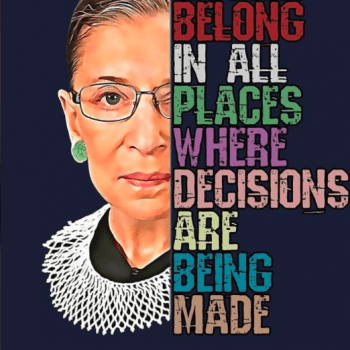While we were screaming into the void about the confirmation of Betsy DeVos, the Senate began confirmation hearings for Jeff Sessions, the pick for Attorney General.
Sessions’ past record on civil rights has provoked widespread protest over his nomination. But this is not a new conversation. In 1986, similar concerns kept Sessions from the federal bench.
Among the voices opposing his appointment 3 decades ago–civil rights activist Coretta Scott King, widow of Martin Luther King, Jr. She addressed a scathing letter to Senator Strom Thurmond and the Senate Judiciary Committee, outlining her concerns about Sessions’ history of African American voter suppression. The collective opposition was enough to keep him from the position at the time.
Echoes of that letter, and that history, have haunted Sessions throughout the recent hearings. Probably not enough to block his confirmation–because, Exhibit A, Betsy DeVos. But the inevitability of his placement has not stopped present-day critics from voicing their concerns.
In case you missed it… Senator Elizabeth Warren took the floor last night and read aloud from King’s 1986 letter. She was quickly silenced by Majority Leader Mitch McConnell, who cited a rarely-enforced rule about “impugning the motives and conduct of a colleague.” Warren was not allowed to continue her statement, but took to Facebook live, outside the doors of the chamber, to finish reading it.
This is the first time in history that Senators have actively spoken against a sitting colleague in this way. Which not only tells you something about Sessions’ credibility around these parts–it also shows that there isn’t a lot of precedent for McConnell’s claims about impugning.
And then there’s this: following McConnell’s objection, Warren’s male colleagues stood–one after another–to read the same letter, and nobody stopped them. Just let that settle for a minute. Senators Udall, Merkley, Brown and Sanders (holla back, Bern!) shared the same passages in the same spirit of opposition, and none of them were told to sit the f*** down and learn their place. Because of course they weren’t.
I supposed I can say that I’m heartened by the men who spoke Warren’s truth when she was not able to speak any more. (She is not allowed to speak for the remainder of the hearings). This is how we hope that all people will use their privileged–whether male privilege, white privilege, or economic privilege–to open doors for those who have been silenced. I suppose I am grateful for that. But that doesn’t excuse the double standard that remains.
It’s cool though, because the social media machine has turned McConnell’s own words against him. Watch as #ShePeristed enjoys a mad trend on Twitter today. Also watch it be the slogan for Warren2020. I’d wear the shit out of that shirt.
Beneath the overt sexism, let’s not lose the significance of race and privilege in this moment. Sen. McConnell did not just silence Sen. Warren because she’s a woman; he silenced her because she was calling their fellow Senator a racist. Using the words of a black woman who wrote the condemning words to begin with. As many have pointed out today, he effectively silenced both of them.
And here is the truth that our African American brothers and sisters have been trying to tell us for so long, that many of us are just starting to understand: we say that we abhor racism, and yet we have made it socially unacceptable to call out racist behavior or rhetoric. Unless they are wearing a white hood and are burning a cross, and have effectively named their own selves to be racists, we are not allowed to throw that word in anyone’s direction. Because that would be offensive.
If you have only one takeaway from today’s episode of Sickening Politics, let it be this: white folks in power have declared accusations of racism to be more offensive than racism itself. Even we Jesus people. At some point, we decided that being polite and getting along was more important than living out a true social gospel and defending the rights of people on the edges.
As I wrote this reflection, I was carrying on a simultaneous discussion on Facebook, with a clergy colleague who defended Sessions. He was not strongly advocating for Sessions’ appointment… it was a more of a “people can change/everybody deserves a chance” kind of position. When I pointed out–I swear, in the most non-confrontational way possible–that his position might come from a place of privilege not available to everyone, he ended the conversation. And deleted my comments. And unfriended me.
Which, I don’t know this guy well IRL, so whatever– no hard feelings. But it provides the perfect live demonstration of my larger point–we are far more offended these days by even the hint of accusation than we are by racism itself.
And–as ever– nice girls aren’t supposed to say so.
















